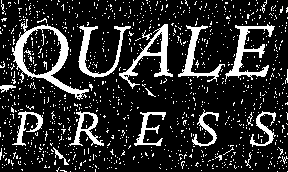|
Excerpts from Watteau Sky...
Joseph Torra's "The Letters to Ed"
1.
An unopened condom on the sidewalk next to the elementary schoolyard. Kids, recess, shouts. Dozens little bodies bouncing into and off of each other. Damn painful and lonely a good marriage can be. Yesterday my father’s old haunts, did anybody know Frank Torra? All the way down School Street yellow orange lime-green worms litter the sidewalk. Candy or rubber worms bass fisherman use? Somerville Ave. another condom, used, big, no, plastic paper partly frozen to the ground. Hi-top sneakers swing by laces from telephone lines. Who owns Somerville? A computer program grow great marijuana. I’d rather look at paintings than write poems. Sunday MFA biggest line I’ve seen. Buying membership ask the short round pissed-off woman why so busy. Probably the Monet. Maybe the de Kooning I say to be witty. Not as far as I’m concerned. That man didn’t like women. I’m not sure. Have you seen what he does with women? Have you seen what he does with men? She hands me temporary membership card, new member’s packet, permanent card comes in the mail with a glare. A soft, fleshy, fiery “Woman.” A mother “isn’t that ugly” to her small children who agree. Folks who came for Monet, lost, a little drunk, laugh and roll their eyes so many I can’t find space between me and the works. In museums there are more woman than men on the make. Maybe de Kooning did hate women. Don’t we all hate ourselves, and blame our mothers for it? Did our fathers hate our mothers, or hate us because our mothers loved us more than they hated our fathers’ mothers? Ed, I’m thinking Beauty and the Beast over the Mass Ave. Bridge, the river half frozen, two college-age guys, one arm one leg each akimbo posing for a snapshot pretending one’s going over the railing, the other holding him back — and don’t I roll down the window and yell Go the fuck ahead, do us all a favor!
Ed Barrett's "Practical Lullabies for Joe"
By No Stretch of the Imagination
for Joe and Molly Torra
This poem is coming on the right day because I have stopped writing in the sense when someone sees me on Mass. Ave. and asks, “What are you writing?” or “Are you writing anything?” they mean what are you writing connected to or, pardon the word, programmatic of a longer thought or interval of experience which is filtered through poetic gills opening and closing on the side of the writer’s face? This is why a poet may not be all that good-looking although within the species these gill-organs of inspiration are hardly noticed, or perhaps noticed as a really attractive feature, like those brightly colored fig-like things on some monkey bottoms, which attest to the leader of the pack. “The body of thought” is a good phrase when it is reported that right after Deng Xiaoping’s death his corpse was dissected and his corneas removed, two shimmering snails popped out of their shells, so that a comrade may no longer tread this earth’s salty crust in darkness, feeling with his or her feet the passage of events — so many people! — as cadence only. Now Comrade Deng-Eyes sees what before had been rumor; “like the rest of us” he thinks happily, for the first time in his life trying out this phrase as he once imagined using it, and straps to his feet the barrel-staves of his former singular existence, to ski away down the side of Mt. Life — in our mythology, with Jill St. John at his side. Their civilization, however, is too ancient not to have recognized they were really haruspicating around in his entrails, or to put it another way, while strip-mining his natural body, they were also looking for a saga of fate or destiny, which is what that question “What are you writing?” has become: what are you discovering “for the rest of us” to use as lenses to see into or through, or maybe for the first time, at? But where the troll bridge crossing says, Hmm, this will be meaningful, the road sometimes throws its face to the ground and cries: Or if I strike my forehead against the bronze-sandaled foot of the day, it is justice and love and knowledge I desire. But to be perfectly honest, I am lonely for Sheepshead Bay and my father and the boat we had. You should feel free to fill-in the blanks about that statement as, metaphorically speaking, I walk around this room dressed like a gypsy violinist at Cafe Zwyzwyski, stopping at your table to whisper these lines while you talk or drink, allowing their music to become part of you, but I’m pretty certain about this: I have a very direct wish to feel on a daily basis sea spray coming over the bow and stinging my eyes, especially during the winter, and to wear bright yellow rubber pants held up by huge suspenders. A blind person’s wish to see is no less real than this scene in my mind, and I feel I cannot see again without it, but where will I find the eyes to sew into my face to bring me to this boat? And how, if I don’t, will I ever stop despising poetry?
|
